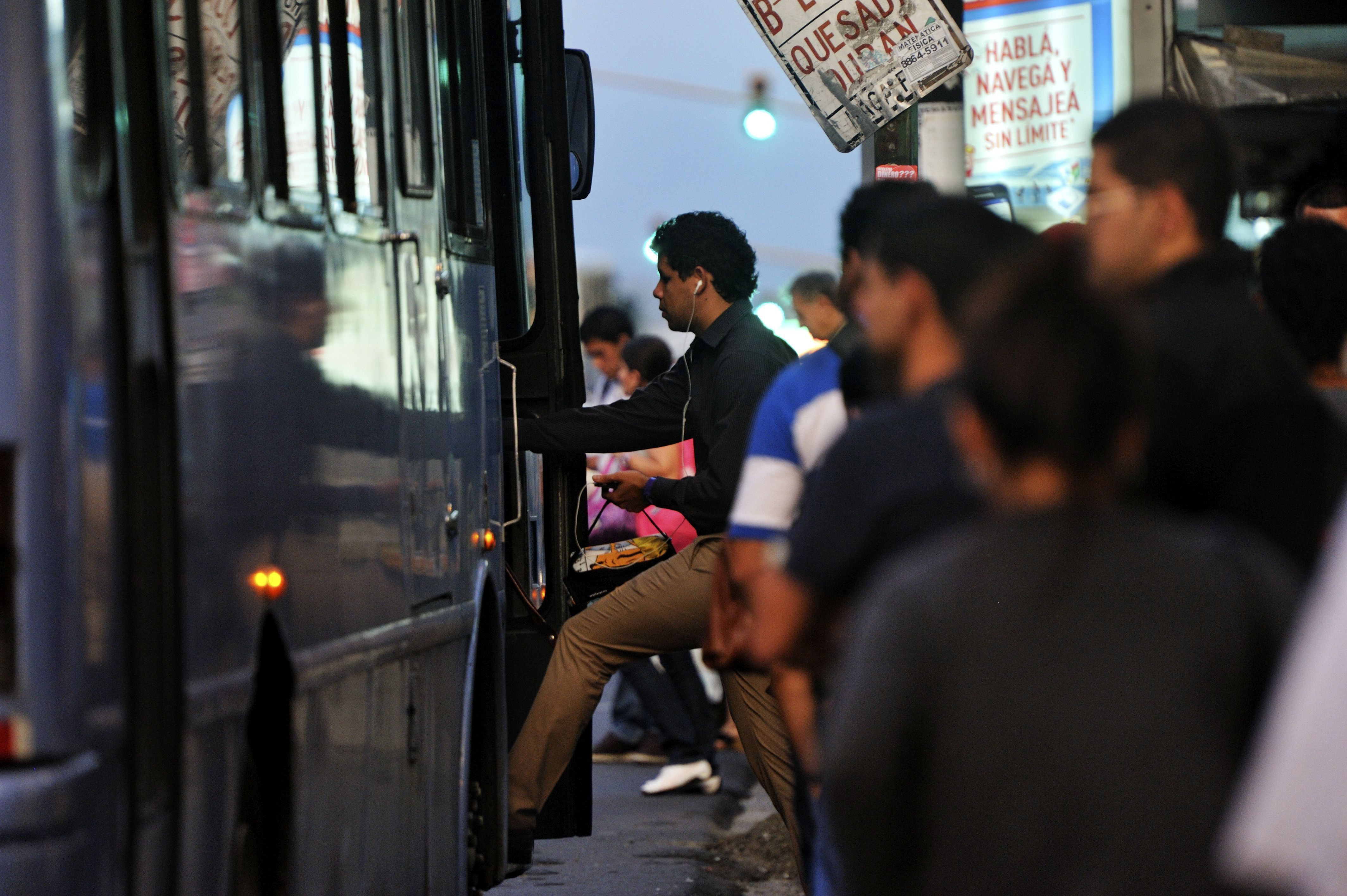The Global Urban Mobility Challenge is now accepting applications!

Bushaltestelle, San José, Costa Rica; Foto: Florian Kopp
Does your city have a big problem in urban mobility? Do you have a bold idea to provide an innovative solution? Would 200k help to boost your project off the ground?
If so, Transformative Urban Mobility Initiative (TUMI), supported by the Ministry for Economic Cooperation and Development, encourages you to apply to the first ever Global Urban Mobility Challenge! TUMI is committed to the transition towards sustainable urban mobility in developing countries and emerging economies, and strives to support creative, resourceful, and original mobility projects that may pave the future for sustainable urban transport. This is your opportunity to receive the support you need to get started, accelerate your ambitious urban mobility goals, and make your dreams a reality.
This international competition is currently looking for innovative pilot projects that tackle big problems in urban mobility, and will award up to 200k to the up to ten cities that best present solutions for urgent and emerging mobility problems in developing and emerging economies. There is no better time to kick start your pilot project and join the TUMI family. TUMI benefits include access to finance, tailored capacity building assistance and invitations to selected events organised by TUMI partners.
TUMI is looking specifically for projects that seek to implement new strategies and connect different groups or actors that have not worked together before. Winning projects will not only be applicable in one specific city, but be able to be implemented and realised in other cities as well.
Pilot projects should meet the following criteria:
- Create accessible environments for people and economy by shifting more trips towards sustainable mobility options
- Support the creation of resilient structures and reduce greenhouse gas emissions in urban transport
- Provide affordable access to public transport and safe walking and cycling environments
- Reduce the number of traffic fatalities and help decrease transport related air pollution
- Be able to be replicated in other contexts in addition to its intended area of implementation
- Be able to be scaled in urban, national and international contexts with the potential to grow and develop
Topics for project proposals are endless. Some projects for inspiration include the Mobility for the Unbanked project in Fortaleza, Brazil which rolled out a bike-sharing system accessible to low-income workers free of charge and without credit card requirements. This framework differs from many others around the world, and provides a new opportunity to add bike-sharing transport trips to fulfill regular urban transport needs.
If you are technologically inclined, you might be more inspired by the Egyptian app, Raye7, that connects car drivers with messages about car sharing possibilities in real time. To avoid awkwardness surrounding financial transactions the app works with a points system that is exchanged and charged directly within the app. Cultural perceptions also play a dramatic role in public transportation use and understandings. Cape Town’s Open Streets Main Road project facilitated collaboration within the city administration to highlight the potential of a ‘city for people.’ Unique characteristics such as meticulously crafted urban walks create a car-free experience and encourage people to think differently about how to move around the city.
TUMI acknowledges that cities in developing countries and emerging economies face bigger challenges than ever before – and urges you to get in contact with them or one of their partners as soon as possible!
Find more information and frequently asked questions here!
